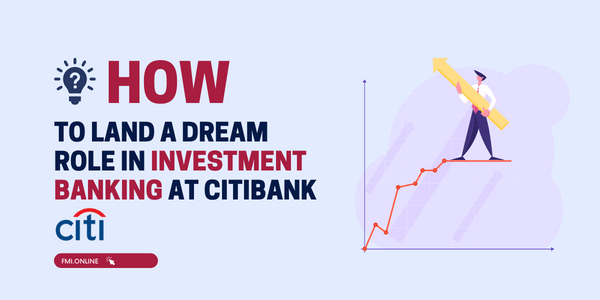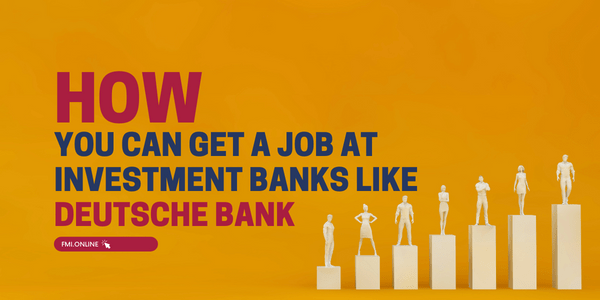CitiBank was founded in 1812 in New York. Today, it is one of the world’s leading banks with their core activities as: safeguarding assets, lending money, making payments, and accessing the capital markets on behalf of their clients.
With over 200 years of experience under their belt, CitiBank is also one of the most coveted when it comes to aspirants looking to work in banking. With a community of 220,000 employees spanning the world, CitiBank is known for offering its employees the opportunity to make a difference and grow their careers exponentially.
Hence, if you are looking to launch your investment banking career, it is safe to assume that CitiBank is one of the top choices on your list. But amidst intense competition, how do you get into an institution as historic and legendary as CitiBank? Here are 3 solid ways:
1. Learn and Connect With What They Do and Stand For
The recruiters at CitiBank insist that you know everything there is to know about the organisation. Hence, you should spend a considerable amount of time before you interview to thoroughly research the company and understand what it means to work at CitiBank.
You can find a thorough description of Citi and its various functions and operations on their website. Once you have done this, focus on their values and how those connect to you. CitiBank emphasises that they responsibly provide financial services that enable growth and economic progress. They also deeply care about responsible finance and ethics.
This is a great opportunity for you to take stock of your professional journey so far and pick out examples which might resonate with these values. It could be an initiative you led that focused on fair finance or a class project where you were able to demonstrate business ethics. Use these examples to your strength during the application and interview process.
2. Show that you are ready for a challenge
A Citi campus recruiter shares that you must remember that there is always a requirement for the role that you may have not been exposed to in the past. Hence, “focus on a plan of action to bridge the gap in your current skill set.”
During the hiring process, recruiters aren’t simply looking for those who are fully prepared to start a role at CitiBank. They understand that any new role requires a learning process. Hence, you must show that you are keen and ready for this learning. You can do so by researching the role thoroughly, identifying which areas you have and don’t have the knowledge and skills for, and then presenting to the recruiter how you will equip yourselves for these areas. To do this, share examples of past professional endeavours where you have gone out of your way to learn a new skill. It may not even be directly related to investment banking such as learning a language or a sport.
However, if you would rather choose to gain extra foundational knowledge of investment banking, you can take courses such as the Investment Banking pathway by FMI. This shows initiative, the ability to go the extra mile, and manage and organise your tasks well.
3. Network with existing employees
This may seem like a cliched step when trying to land your dream job but you would be surprised to know how few aspirants actually go through with it. While you might feel shy or hesitant to connect with existing employees at CitiBank, this slightly uncomfortable step has the potential of unlocking wide avenues for you.
A Citi employee herself recommends the following:
Hence, it means that this is standard practice, and you should not hold yourself back. Using LinkedIn, you can set up a short chat or if possible, an informational interview in-person. The amount of knowledge and experience you will gain from this interaction surpasses any theoretical information that you may get from reading profile after profile online.
CONCLUSION
CitiBank is a premier institute for you to consider for starting your investment banking career. Contrary to what you might have heard, banking recruiters care significantly about your personality, the effort you make to understand and connect with the company, and the ability to handle a challenge head-on. Ensure you demonstrate these skills through your application and interview, and you will be one step closer to landing your dream role!









